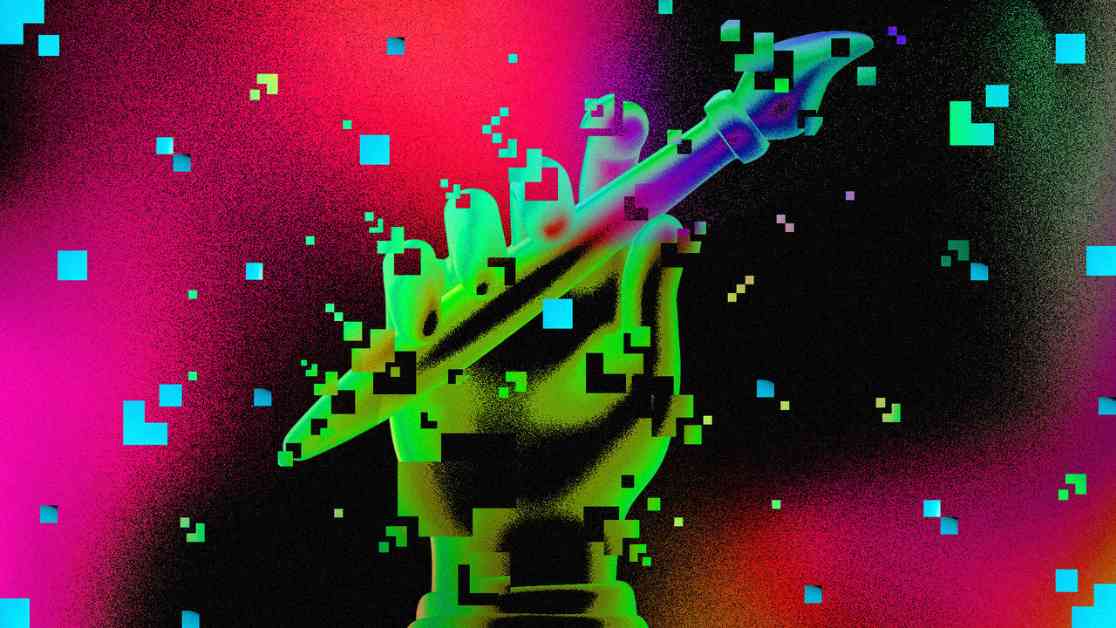The innovative technology of Generative AI is capturing the attention of many, offering a glimpse into a future where artificial intelligence can create ultra-realistic images and videos. However, as we delve deeper into the ethical implications of this cutting-edge technology, a troubling question arises: is Generative AI built on theft?
The scene is set with a group of footballers that appear strikingly realistic at first glance. But upon closer inspection, an unsettling reality unfolds. Their faces are distorted, their limbs contorted in unnatural positions, and the ball they play with is oddly misshapen. Yet, the most peculiar detail of all is the faint watermark of Getty Images running across one player’s leg, casting doubt on the authenticity of these generated images.
Generative AI, a technology that uses algorithms to generate new content based on existing data, has raised concerns about intellectual property rights and copyright infringement. By utilizing images and data from sources like Getty Images without proper authorization, these AI-generated creations blur the lines between original and derivative work, sparking a debate on the ethical boundaries of artificial intelligence.
Uncovering the Impact of Generative AI
As we navigate the complex landscape of Generative AI, it becomes apparent that this technology has the potential to revolutionize various industries, from entertainment and marketing to healthcare and education. By harnessing the power of machine learning and neural networks, AI algorithms can create hyper-realistic images and videos that mimic human creativity with uncanny precision.
However, the issue of intellectual property theft looms large over the promising prospects of Generative AI. The unauthorized use of copyrighted material raises concerns about the ethical implications of AI-generated content and the need for stricter regulations to protect the rights of original creators. As we grapple with the consequences of this emerging technology, it is crucial to consider the impact of Generative AI on the future of innovation and creativity.
Leading the Conversation on Ethical AI
In the midst of debates surrounding the ethical implications of Generative AI, it is essential for industry leaders, policymakers, and technology experts to come together to establish guidelines and standards for responsible AI development. By fostering a collaborative dialogue on the ethical use of artificial intelligence, we can ensure that innovation remains ethical, sustainable, and beneficial for society as a whole.
As we confront the challenges posed by Generative AI and its implications for intellectual property rights, it is imperative to strike a balance between technological advancement and ethical considerations. By addressing these issues head-on and engaging in meaningful discussions about the future of AI, we can shape a more ethical and inclusive digital landscape for generations to come.



















